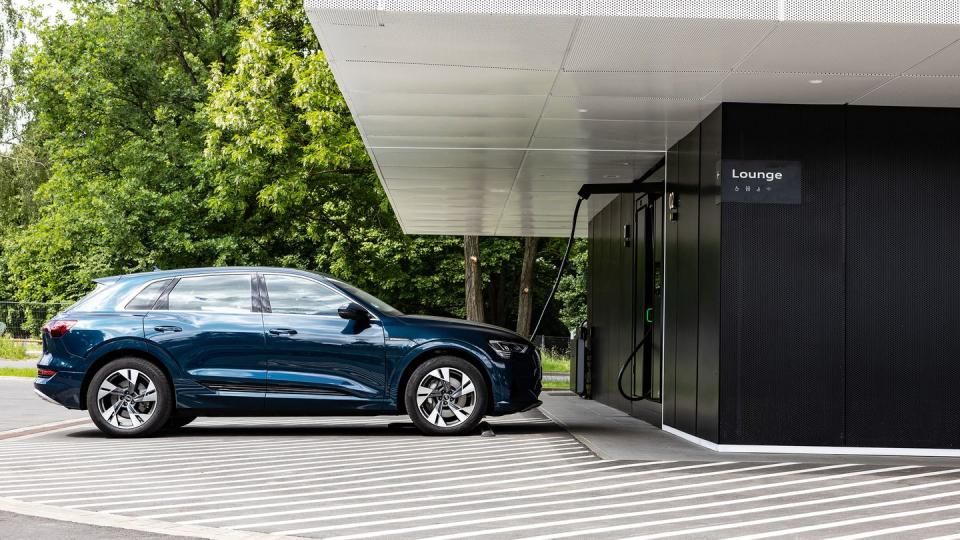VW Is Getting into the Large-Scale Energy Storage Business

The VW Group's charging and energy unit Elli, along with partners, plans to build large-scale stationary energy storage systems to collect and distribute electricity from renewable sources in Europe.
The automaker already uses smaller-scale energy storage systems as part of charging hubs, with the industrial-scale projects intended to benefit grid customers in Germany and elsewhere in Europe.
One of the larger planned systems could store up to 700 MWh, with the first such system expected to appear in Germany as early as 2025.
The Volkswagen Group is no stranger to battery energy storage systems (BESS), using them as part of Audi's charging hubs in Europe. The hub-based storage systems employ used EV batteries from vehicles that have been recycled, using them to boost the charging hub's ability to provide electricity to EVs during peak hours, thereby reducing its reliance on the grid.
But VW now wants to get into the energy storage business on a much larger scale.
The VW Group revealed that its Elli charging and energy unit, along with partners, will construct and operate large-scale energy storage systems, with the biggest planned project aiming for a 700-MWh storage capacity.
The ultimate goal of such systems is to store energy from renewable sources and sell it when it's needed by customers.
"We see high financial potential in this business area and the opportunity to develop Elli into a holistic energy provider in Europe," said Giovanni Palazzo, current CEO of Elli and former CEO of Electrify America.
VW points out that in 2023 alone, about 10,500 GWh were not generated from renewable electricity sources due to lack of intermediate storage just in Germany. An industrial-scale BESS would have solved this issue, storing enough energy to power over 3.2 million EVs in a single year, the automaker notes.
VW has already taken steps in the direction of becoming a battery manufacturer, having revealed plans to build battery production hubs in a number of regions, including North America, in addition working to secure the supply of raw materials for batteries.
With plans to invest in industrial-scale BESS, VW is also looking ahead to the future of off-grid charging for EVs, which would see charging hubs linked up to renewable energy sources such as off-shore wind turbines.
"Germany and Europe need sufficient storage solutions to meet the increasing demand and to compensate for the volatile feed-in of renewable energies," said Volkswagen Group Board Member for Technology, Thomas Schmall. "Our investment in stationary battery storage systems is therefore a significant contribution to the sustainable transformation of the energy supply."
It remains to be seen how quickly VW will be able to build a large-scale BESS, and which regions could benefit from it the earliest.
At the moment, the VW Group's plan represents a step in the direction of creating a greater EV ecosystem, but residential areas stand to benefit from it as well if all unfolds as VW predicts. Smaller-scale BESS efforts that involve charging hubs like those by Audi and Porsche also appear to be in demand in the longer term, as problems with third-party charging networks continue to depress the momentum of EV adoption.
The first such industrial-scale storage system could go online in Germany as early as next year, the VW Group predicts.
Will battery energy storage systems become a common part of electrical infrastructure in the next few years, or is this an unrealistic and expensive concept to attempt on a larger scale at the moment? Let us know what you think in the comments below.

 Yahoo Autos
Yahoo Autos 